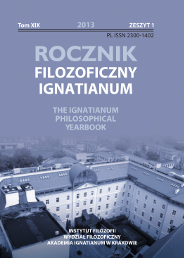Dwa typy racjonalności - Berkeley i Newton
Two Types of Rationality - Berkeley and Newton
Author(s): Jacek GurczyńskiSubject(s): Philosophy, Special Branches of Philosophy, Philosophy of Science
Published by: Uniwersytet Ignatianum w Krakowie
Keywords: rationality; pragmatism; infinitesimals; classical mechanic
Summary/Abstract: This paper discusses the dispute between G. Berkeley and I. Newton concerning the validity of classical mechanics. These two engaged in a discussion about infinitely small quantities --- infinitesimals --- which were used in differential and integral equations by Leibniz and Newton. Infinitesimals were both equal to zero and at the same time different from zero. The standard view is that Newton was right in defending classical mechanics. But if we accept a narrow sense of rationality --- as a procedure conforming to logical rules --- then Berkeley was right, for there are no numbers at the same time equal to and different from zero. The problem of infinitesimals was resolved in the 19th century, when the notion of limit was strictly defined. Seen in the light of this, Berkeley appears as rational, and Newton as pragmatic in his determination to preserve a promising physical theory.
Journal: Rocznik Filozoficzny Ignatianum
- Issue Year: 19/2013
- Issue No: 1
- Page Range: 7-18
- Page Count: 12
- Language: Polish

